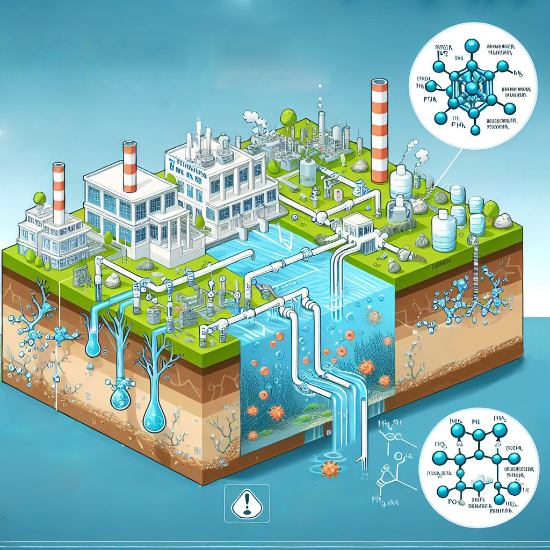Dangerous Chemicals in Drinking Water: TFA and PFAS on the Rise
 Image: Umweltcheck.ch
Image: Umweltcheck.ch
TFA and PFAS in Drinking Water: How Dangerous Are These Substances for Our Health?
The quality of drinking water in Switzerland is increasingly under pressure. Particularly Trifluoroacetate (TFA), a breakdown product of pesticides, is attracting attention. It belongs to the group of per- and polyfluoroalkyl substances (PFAS), which are extremely durable and hardly degradable. Experts warn of health risks, while political measures are still lacking.
TFA – an underestimated danger in drinking water
The Federal Office for the Environment (FOEN) found TFA residues in all 550 tested groundwater samples in Switzerland – especially in agricultural regions. The so-called «forever chemical» enters the soil via pesticides and thus the drinking water. A PFAS water test can help households check their individual exposure.
Health risks: What does science say?
Earlier assumptions about the harmlessness of TFA are increasingly being questioned. The WWF Switzerland points out that long-term effects are still unclear. According to a Bayer study, high doses of TFA can lead to malformations in rabbits. The EFSA is currently reviewing a reassessment of the limit values. A drinking water test for PFAS provides everyday security.
Flufenacet – a pesticide under suspicion
Flufenacet continues to be used in agriculture in Switzerland – including in the cultivation of maize, cereals, and potatoes. In the EU, the substance is under observation: initial studies indicate a possible hormonal effect. A ban is being discussed there – Switzerland is still hesitant.
High costs for drinking water treatment
If officially classified as harmful to health, cleaning drinking water could cost several billion Swiss francs. Expert estimates range up to 7 billion – with possible additional costs for households. PFAS contamination is already a growing problem for many water suppliers today.
What can be done?
Some European countries are already taking concrete measures against TFA precursors. Switzerland, however, remains hesitant. Meanwhile, regular water tests are a first step for private households to react early. In parallel, a political course must be set towards sustainable agriculture and consistent water protection.
Conclusion: Time to act!
The increasing contamination of drinking water with PFAS and TFA requires decisive action. The longer we wait, the greater the risks – for health, the environment, and the future of drinking water supply.
Drinking water is our most important resource – how long can we afford not to act?
Do you want to know if your water is contaminated? A PFAS water test quickly provides clarity – independently, simply, and safely.
Further information:
- FOEN – TFA in Groundwater
- WWF – Why do we always act too late?
- naturschutz.ch – Pesticides in Groundwater
- Umweltinstitut – Pesticides on the Way Out?
✔ 20 common PFAS chemicals
✔ Per- and polyfluorinated alkyl substances

